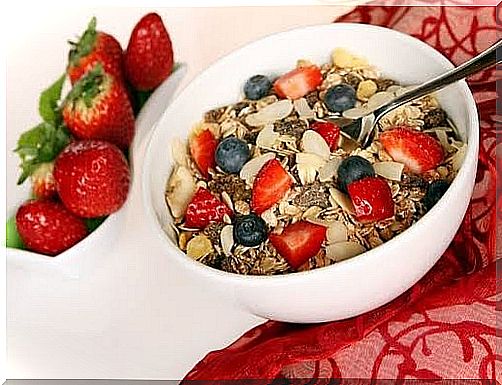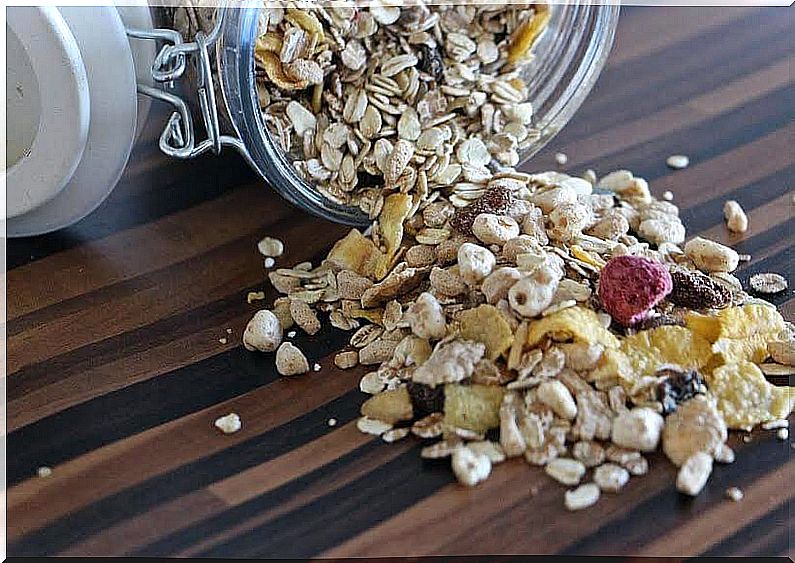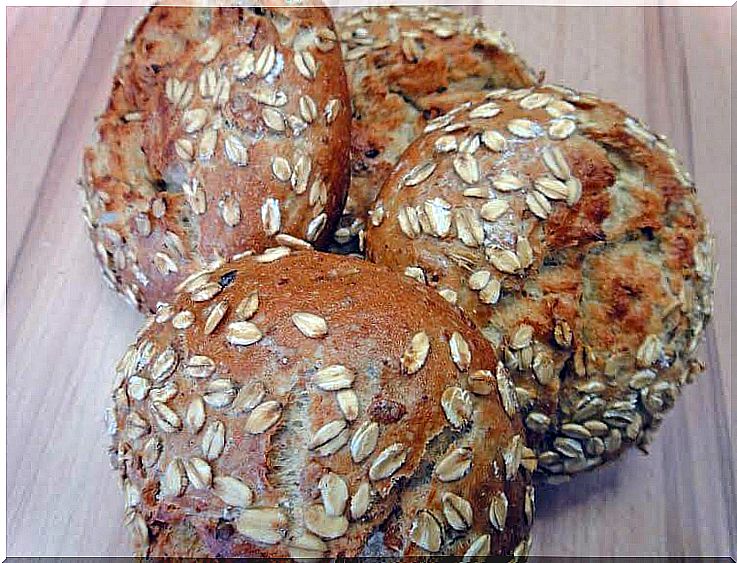The Ideal Breakfast For Pregnant Women Contains Oatmeal

The best thing that moms can do during pregnancy is to take care of the diet. So we invite you to know the reasons why oats cannot be missing from your diet. This cereal provides quality nutrients for the body, which ensure its proper functioning.
This time we want to focus specifically on the ideal breakfast for all pregnant women, who want to take care of the little being that is being formed inside their womb. The first meal of the day is a perfect time to introduce oats into the diet, replacing the pastries that usually appear on a regular basis.
Oats are an essential food for pregnant women
Although the alternatives are diverse and the menus are practically endless, we want to tell you what cannot be missing from that first daily meal. It is about oats, a cereal capable of providing energy and a series of nutrients to the body. It is also delicious and easy to digest, so there are no excuses for not preparing and consuming it.
According to Venezuelan fitness specialist Sascha Barboza, oats contain complex carbohydrates that prevent blood glucose spikes. For this reason, it is recommended that they be consumed before simple carbohydrates, since the latter tend to exaggerately stimulate insulin production. In fact, regular sugar intake is associated with an increased risk of metabolic diseases, according to the latest research.
Oats are a complex carbohydrate with slow absorption
For Barboza, oatmeal is one of the best breakfasts not only for pregnant women, but for anyone who wants to take care of their diet due to its nutritional and vitamin contribution.
Benefits of oats

As it is a whole grain, its glycemic load is low, so it is perfect for maintaining sugar levels in the body.
Its high fiber content is perfect for reducing the annoying constipation that pregnant women often experience. In fact, a study published in The Journal of Nutritional Biochemistry states that oats are essential to ensure a healthy microbiota, which reduces the incidence of intestinal pathologies.
During the gestational stage, women need to increase the levels of iron and potassium, elements that are present in oats and that work to prevent anemia and lack of cellular oxygenation.
Other essential vitamins that are present in oats are: vitamin B1, vitamin E, magnesium, calcium, phosphorus, iodine and zinc that allow the optimal development of the baby that is coming.
You can prepare oats in different ways and combine it with whatever you want
A key fact

Of course, oatmeal alone is not enough for a balanced breakfast. In fact, depending on the manufacturer, oats can have a variety of nutrients.
That is why it is advisable to read the label to know in detail what you are consuming, and thus be able to supplement with other foods such as fruits or legumes.
Ways to make oatmeal for breakfast
Some ways to prepare oatmeal for breakfast can be:
- A bowl of hot oatmeal. Boil the oatmeal flakes in water or milk for about five minutes. You can add spices like a cinnamon stick for flavor. And sweeten with any low calorie sweetener.
- Cold oatmeal soda. In the supermarket you can find various brands of instant oatmeal to prepare drinks. This option is very simple because you only have to mix the powdered oatmeal with liquid milk in the blender and it will be ready to serve with some ice cubes.
- Pancakes. Oatmeal is the best substitute for other refined flours, such as wheat or corn. If you want to make pancakes, you just have to mix four egg whites, with half a cup of oatmeal and add a teaspoon of vanilla to sweeten. If you don’t have this type of oatmeal at home, don’t worry as you can put the flakes in the processor and that’s it.
- Bread and cookies. In the market there is a wide variety of cookies and whole grain breads made with oats and nuts, these ingredients are very good for you and your baby, so do not hesitate to buy them to include them in your breakfast.
Include oatmeal in the diet if you are pregnant
It should be clarified that you should not limit the consumption of oatmeal only for breakfast. Some specialists recommend two or three daily servings of whole grains.
So you can take this into account so that you also include it in your snacks and dinners. Another factor that you should not ignore is that the diet should be supervised by your doctor, since he knows all your medical history and the conditions of your pregnancy.










